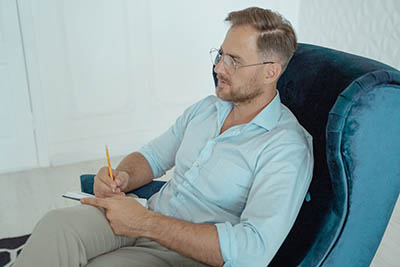
For Teachers & Professionals
Prostate cancer and Sexuality: couple’s intervention
Prostate cancer is cancer that occurs in the prostate. The prostate is a small walnut-shaped gland in males that produces the seminal fluid that nourishes and transports sperm. Prostate cancer is one of the most common types of cancer. Many prostate cancers grow slowly and are confined to the prostate gland, where they may not cause serious harm. However, while some types of prostate cancer grow slowly and may need minimal or even no treatment, other types are aggressive and can spread quickly.
Sexual dysfunction is the most common health-related quality of life complaint among prostate cancer survivors, affecting patients and partners in distinct yet significant ways. Partners play a critical role in the sexual recovery of prostate cancer survivors by providing both emotional and logistical support.
In prostate cancer, there are five related themes that are considered important to sexual recovery.
1. Pre-treatment preparation
Pre-treatment preparation for sexual side effects, rehabilitation strategies, emotional reaction to the side-effects, and realistic expectations of outcomes. Patients acknowledge that thay have limited pretreatment knowledge about the sexual side effects of prostate cancer treatments, due to their healthcare provider focusing on cancer control only, rather than the impact of cancer therapies on long-term quality of life.
The need for better pre-treatment counseling about side effects and realistic expectations for recovery is widely accepted, with multiple patients explicitly outlining the need for a patient-provider discussion about penile rehabilitation, regardless of patient age or relationship situation.
2. Improved communication
Improved communication between partners about sexual concerns. Both partners need to vocalize their concerns about treatment-related sexual side effects, and to understand each other’s needs about the physical loss of sexual function, and the emotional changes associated with the onset of sexual dysfunction. Talking about the sexual effects of this type of cancer and treatment-related expectations while both partners are present might be useful, further asking something like “What are your questions, what are your concerns?”.
3. Strategies for Promoting Intimacy
Patients and partners express a wish that they would have support for maintaining physical and emotional intimacy. Males disappointment often is not the loss of erectile function itself, but the concomitant loss of intimacy. Sexual counseling about the importance of sexual pleasure and intimacy even without the possibility of penetration is important.
4. Attentiveness to Partners’ Needs
Multiple partners want women to be just as interested in sexual activity as men are. Female partners instead may be embarrassed to share this sentiment for fear of being negatively judged, especially in the setting of male erectile dysfunction. Learning to express both needs might be helpful.
5. Access to Peer Support
Peer support, group support, and counselling help navigate the physical and emotional challenges associated with treatment-related sexual dysfunction and help the patients and partners not feel alone. People feel more comfortable sharing their life with someone experiencing the same.
6. Concerns of Gay Men and Same-Sex Partners
Gay men in particular emphasize the need for providers to be comfortable talking about all types of sexual activity and attentive to the specific needs of gay men. Also for same-sex partners, it is important to have a discussion with the couple together.
7. Web-based Intervention
Web-based intervention to promote recovery of sexual function among prostate cancer survivors is important. The primary benefits of a web-based intervention were access to reliable information pertaining to the physical and emotional aspects of sexual function.
Share the knowledge!
More For Teachers & Professionals Q&A

Pregnancy and Sexuality

Testicular cancer and Sexuality

Early Pregnancy Loss and Emotional Counselling with a Patient-Centred Perspective

Addressing Young Women's Sexual Health in a Non-Judgmental Way

Intercultural Communication

Improving Communication With Sexual and Gender Minority Patients
This is a website that WE are building together. If you have a question there is no answer to on this site, send it here!
